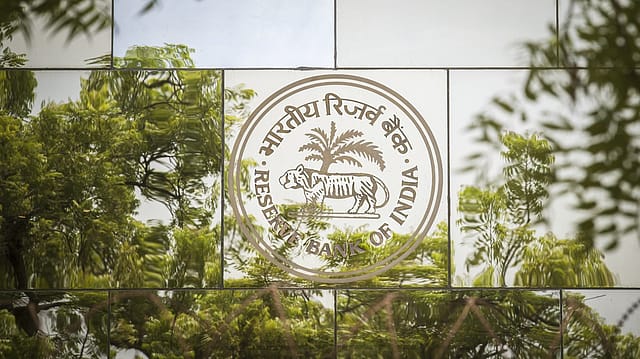RBI eases norms to boost forex inflows
ADVERTISEMENT

The Reserve Bank of India has announced a slew of measures to diversify and expand the sources of forex funding in order to mitigate volatility and dampen global spillovers.
As part of the central bank's new measures, foreign investors can now invest in short-term corporate debt. The RBI has also allowed FPIs to purchase more government securities under the fully accessible route.
This comes at a time when the Indian rupee has depreciated by 4.1% against the US dollar during the current financial year so far (up to July 5). The drop in the value of rupee is modest relative to other emerging market economies and even major advanced economies, the central bank says.
"The global outlook is clouded by recession risks. Consequently, high risk aversion has gripped financial markets, producing surges of volatility, sell-offs of risk assets and large spillovers, including flights to safety and safe haven demand for the US dollar. As a result, emerging market economies (EMEs) are facing retrenchment of portfolio flows and persistent downward pressures on their currencies," the RBI says in a statement.
Foreign currency non-resident deposits and NRE deposits will be exempt from the maintenance of cash reserve ratio (CRR) and statutory liquidity ratio (SLR).
This relaxation will be available for deposits mobilised up to November 4, 2022. However, transfers from Non-Resident (Ordinary) (NRO) accounts to NRE accounts shall not qualify for the relaxation.
"It has been decided to temporarily permit banks to raise fresh FCNR(B) and NRE deposits without reference to the extant regulations on interest rates, with effect from July 7, 2022. This relaxation will be available for the period up to October 31, 2022," the central bank adds.
The limit for external commercial borrowings under the automatic route has been increased to $1.5 billion from $750 million or its equivalent per financial year. The all-in cost ceiling under the ECB framework is also being raised by 100 basis points, subject to the borrower being of investment grade rating.
Banks will be able to utilise overseas foreign currency borrowings for lending in foreign currency to entities for a wider set of end-use purposes, subject to the negative list set out for external commercial borrowings, the RBI says.
Despite headwinds from geopolitical developments, elevated crude oil prices and tighter external financial conditions, high frequency indicators point to an ongoing recovery in several sectors, the central bank notes. India's foreign exchange reserves stood at $593.3 billion as on June 24, 2022.